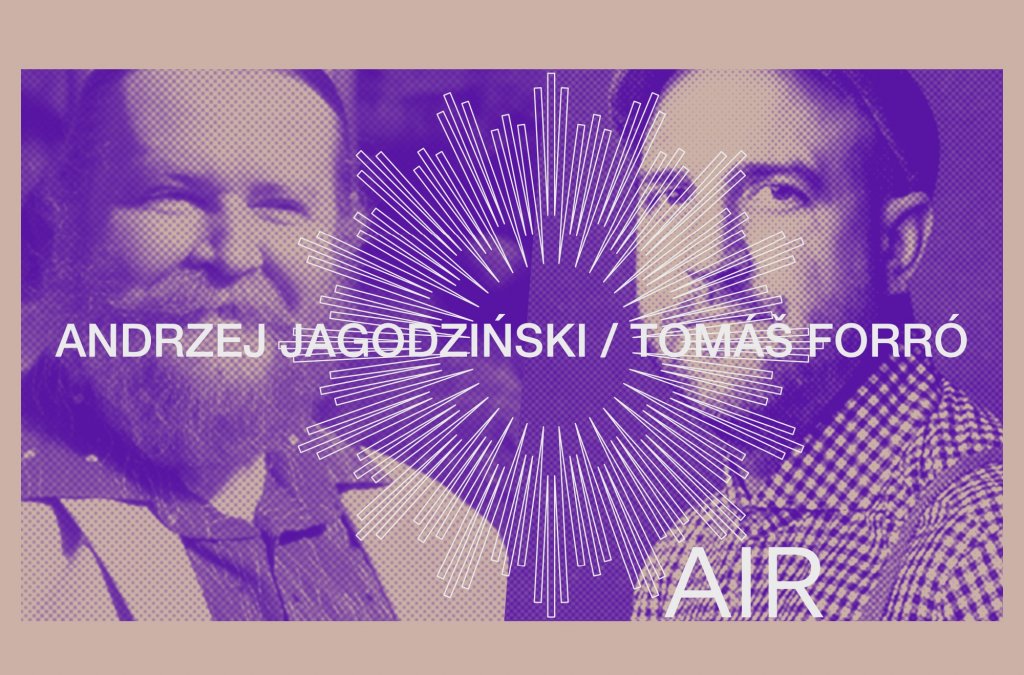
Andrzej Jagodziński is another resident at the TROJICA AIR residency in Banská Štiavnica. He is translating the book Donbass. The Wedding Suite in Hotel War.
During the course of each residency an event takes place in Banská Štiavnica at which the translator – author tandem is introduced. On Friday, September 4th, Andrzej Jagodziński and Tomáš Forró will talk about literature, translation and journalism in Eleuzína (Horná ružová 1, Banská Štiavnica). The event starts at 6:30PM and you can find more information here.
Andrzej Jagodziński is a Polish philologist, journalist, translator and ex-dissident. He studied Czecho-Slovak philology at the university in Warsaw between 1973 and 1978. During his studies, he cooperated with the democratic opposition and mediated the first contacts between KSS-KOR and Charta 77. In the 1970s and 80s, he worked together with independent Polish periodicals and publishers and with Czechoslovak exile magazines: Svědectví (Paris), Rozmluvy (London) and Obrys (Munich).
Since 1978, he has been translating Czech and Slovak literature into Polish. He had translated books of Václav Havel, Milan Kundera, Bohumil Hrabal, Václav Kohout, Jozef Škvorecký, Viktor Fischl, Jíři Gruš, Egon Hostovský, Karol Sidon, Dušan Mitana, Rudolf Sloboda, Martin M. Šimečka and others.
Why did you decide to translate Donbass. The Wedding Suite in Hotel War? How can this book be interesting for Polish readers?
In Poland, the war in Donbass is being closely watched – we share a long border with Ukraine, and, perhaps more importantly, a long mutual history that is full of good and very bad, dramatic and even cruel chapters. Moreover, Ukraine separates us from Russia – a country Polad has had mostly bad experience with in the past. For these and other reasons most Polish people root for a free and democratic Ukraine.
Naturally, we also have many publications on the war in Donbass but Tomáš Forró's book is, I think, unique because it offers its readers the points of view from both sides of the front. The author had lived and collected material there for months. It is a "complete book" – there is sound political analysis, reporting, elements of investigative journalism, and above all, it is a touching account of the fates of ordinary people, desperate and mostly completely innocent, whose lives had been destroyed by war.
I wish that Tomáš' book gets the response that it deserves in Poland. I will try to be of help.
What was the biggest translation challenge here?
Non-fiction is very popular in Poland. I, too, love to read it when I have the time. However: even though I had translated more than 50 books, I have never, until now, worked within the genre of literary reportage. So in a sense, it will be my debut as well. That in itself is a challenge. Aside from that, I have to make sure to carefully adapt the language of the translation to the unique chapters of the book – the language (and style) of a scientific interpretation is completely different from the language of the moment in which the narrator feels an M-16 gun pressed against his back. These are, however, questions a translator commonly solves. I believe I can manage.
Does the residency suit your working style? Are you able to better concentrate here?
Yes, I am able to work really well when I'm not in my office because life has forced me to adapt (although the adaptation took years). When I first started translating and writing, my wife and I had lived in Warsaw in a studio of 23 square meters with our two children and yet we were happy to have our own apartment. Of course it was impossible to work there so I made use of invitations of friends and neighbors or I applied for residencies that various artistic organizations offered. It was not easy in the beginning since a translator needs to have a lot of different, often unexpected, tools at hand – at least I do. But today, the internet makes it all easier. Besides, being away from my private library means less temptation.
What else are you working on these days – other translations, your own texts and such?
It is a habit of mine that when I leave for a longer time, I always bring at least two things to translate plus something to read. So aside from Tomáš' book, I am also translating a play by Viliam Klimáček on my "breaks." I also brought a couple of older Polish magazines that I didn't have time to read; however, I have found so many interesting Slovak books in the study here that the magazine articles will have to wait for another opportunity.